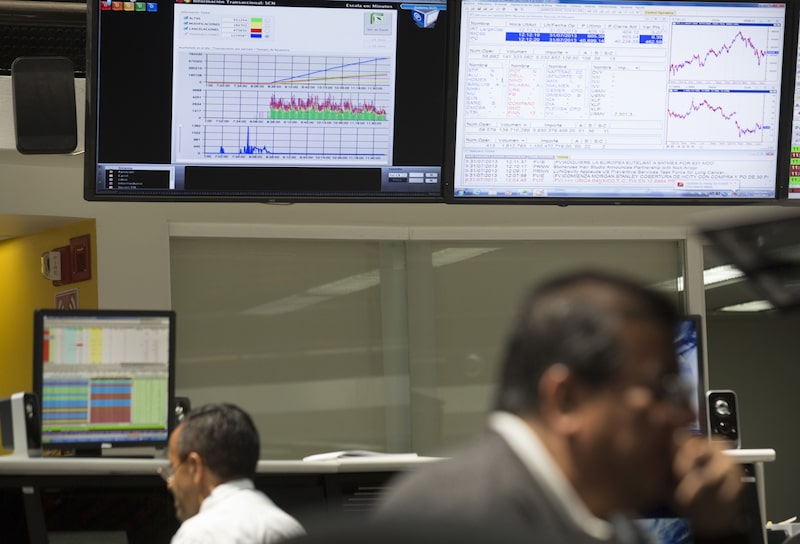Bloomberg — Unifin Financiera SAB (UNIFINA) drove about a fifth of trading in its own stock in the weeks before a collapse that sent shares and about $2.4 billion in bonds from Mexico’s biggest non-bank lender spiraling.
A buyback fund from Unifin spent 12.9 million pesos ($640,00) to buy 800,776 shares from the end of June through Aug. 4, according to stock exchange filings. That’s 22% of the total volume over that period, data complied by Bloomberg show. In the preceding 12 months, the small-business equipment-financing company spent nearly $25 million to support the stock while assuring investors it had ample access to financing alternatives.
Unifin’s buybacks likely helped support the stock price ahead of its crash and raised eyebrows among bond investors as the company burnt through cash on the purchases before telling the market there was a financing crunch.
Confidence collapsed in Mexico’s non-bank lenders this year after Credito Real SAB and Alpha Holding SA defaults sent bond prices tumbling for the sector. Foreign investors are facing losses of around $5 billion on global notes from Mexico’s non-bank lenders, sometimes known as shadow banks since they don’t take deposits and operate under less scrutiny than other financial institutions. In the years leading up to the crisis, the lenders had posted strong portfolio growth backed by a flood of global financing.
“It’s not surprising to see those sort of shenanigans - par for the course for a Mexican company in financial distress,” said Roger Horn, a senior strategist at SMBC Nikko Securities America in New York.
Unifin Chairman and majority-holder Rodrigo Lebois is now leading restructuring talks with bondholders after shares and bond prices cratered earlier this month when the company said it would stop coupon and principal payments. The firm said it was closed out of financing options due to the sector-wide contagion and some revolving credit lines were not renewed. The stock has lost roughly $830 million in market value from its January peak while the bonds now trade around 15 cents on the dollar.
The precipitous drop in the stock price before Unifin revealed it would halt payments would have triggered reports from both of Mexico’s exchanges to the country’s securities regulator to look for signs of insider trading and manipulation, according to regulations.
An external company representative declined to comment on questions from Bloomberg News. Mexican securities regulator CNBV did not respond to a request for comment.
The buyback fund last operated on Aug. 4. The following day, a Friday, Unifin trading volume jumped to 2.5 times the recent 15-day average as investors cashed out about $300,000 in shares.
On Aug. 8, a Monday, another spike in trading sent the stock tumbling 15% lower and triggered a trading halt. When a 15% move occurs, companies are required to file a statement disclosing knowledge of any reason for the move and to attest that no insiders have been trading before the halt can be lifted. Unifin never filed such a statement. Just before midnight, the company said it would halt bond payments.

